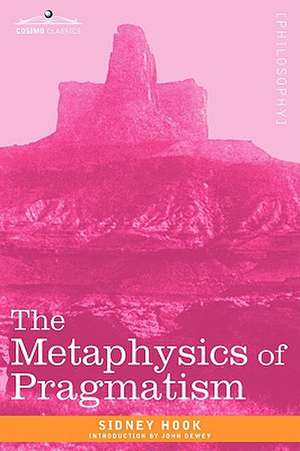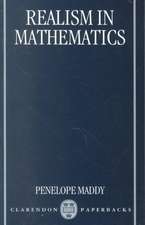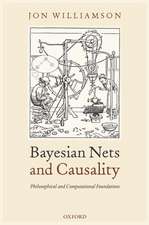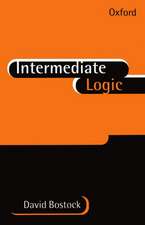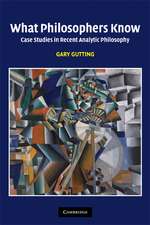The Metaphysics of Pragmatism
Autor Sidney Hook John Deweyen Limba Engleză Paperback – 30 noi 2008
Preț: 115.34 lei
Nou
Puncte Express: 173
Preț estimativ în valută:
22.08€ • 22.76$ • 18.62£
22.08€ • 22.76$ • 18.62£
Carte tipărită la comandă
Livrare economică 27 februarie-13 martie
Preluare comenzi: 021 569.72.76
Specificații
ISBN-13: 9781605203607
ISBN-10: 1605203602
Pagini: 156
Dimensiuni: 152 x 229 x 9 mm
Greutate: 0.24 kg
Editura: COSIMO CLASSICS
ISBN-10: 1605203602
Pagini: 156
Dimensiuni: 152 x 229 x 9 mm
Greutate: 0.24 kg
Editura: COSIMO CLASSICS
Textul de pe ultima copertă
Since its founding in the nineteenth century by Charles Sanders Peirce, the pragmatic school had been criticized as antimetaphysical and its focus on scientific method and critical inquiry viewed as undermining one of the very foundations of traditional philosophy. In the Metaphysics of Pragmatism, written as his doctoral dissertation and first published in 1927, Hook began his distinguished philosophical career by juxtaposing the terms "metaphysics" and "pragmatism" to show that the pragmatic method cannot begin to help us solve human problems without holding to a particular view of how the world is arranged both physically and conceptually. But this does not imply that pragmatism holds to a traditional, rigid metaphysic. Rather, as Hook's ground-breaking study shows, it has an interactive dimension in which human problems are viewed as contingent on the ways we structure our questions and design methods for finding solutions, both of which can change - and the implied metaphysic evolve - as inquiry uncovers new information about ourselves and the world.
